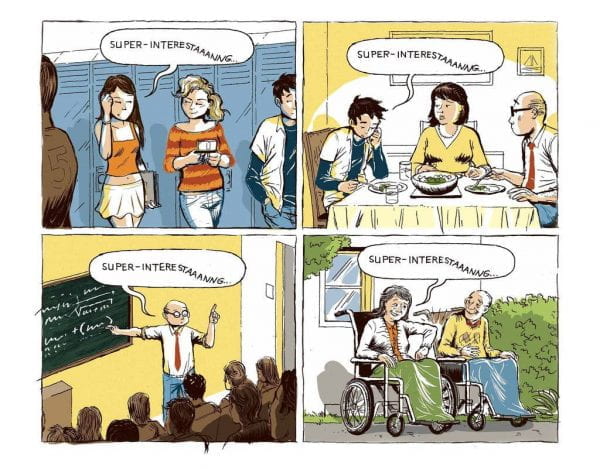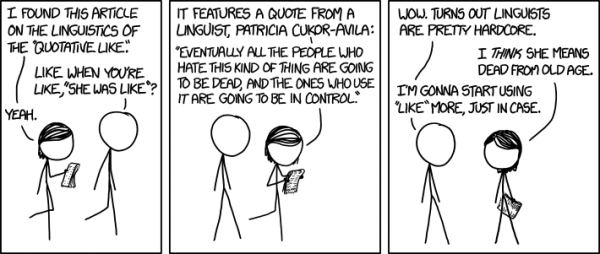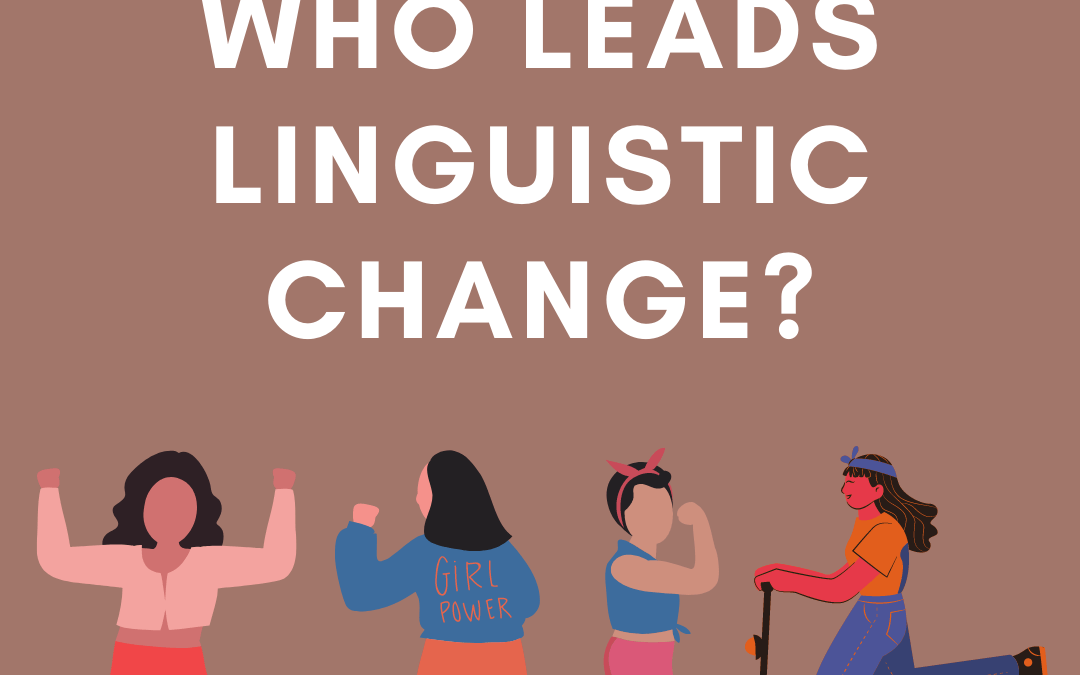
Paul Hoppe https://www.nytimes.com/2012/02/28/science/young-women-often-trendsetters-in-vocal-patterns.html
In her poem titled “When I Say We Are All Teen Girls,” Olivia Gatwood describes the contradiction in attitudes towards teenage girls, who are often considered frivolous and shallow based on their linguistic choices. Simultaneously, so much of the language and behaviors of teen girls tremendously influence our culture. How can the linguistic trailblazers be the ones most mocked for said speech choices (maybe even linguistic risk-taking)? This contradiction is not a new observation. William Labov has long researched language variances between men and women, and observed that women lead 90% of linguistic change. Whether it is creating new slang words, using vocal fry or upspeak, or using ‘like’ as a conversation filler, there’s no doubt that the speech patterns of young women are known and influential.
There are a few theories on why this might be the case.
Gretchen McCulloch, linguist and author of ‘Because Internet: Understanding the New Rules of Language’ says:
While the pattern is well-established, we still don’t know for sure yet why young women reliably lead linguistic innovation. Maybe it’s nature, maybe it’s nurture; but we do know that young women tend to be more socially aware, more empathetic, and more concerned about how their peers perceive them. This may translate into a greater facility for linguistic disruption. Women also tend to have larger social networks, which means they’re more likely to be exposed to a greater diversity of language innovations.
According to McCulloch (and many other researchers), we don’t know why exactly this phenomenon happens. What is interesting is the criticism that women (especially young women) face for this phenomenon. According to Carmen Fought, a Professor of Linguistics at Pitzer College: “If women do something like uptalk or vocal fry, it’s immediately interpreted as insecure, emotional or even stupid.” Perhaps the bigger issue is that the criticism is unwarranted. One does not have to go far to find examples in popular culture making fun of these specific speech patterns– everywhere from Saturday Night Live to Tik Tok, it’s the trope that is seemingly unending.
We know that language is always evolving, almost always in ways we cannot predict. Perhaps it is necessary to reframe how we view the linguistic patterns of young women. Maybe, rather than resisting the inevitable linguistic evolution, the appropriate response is to honor those that lead it, the ones who Olivia Gatwood calls scholars:
“…the teen girls who are our most distinguished professors, who teach us to bury the burst until we close our bedroom doors, and then cry with blood in the neck, foot through the door, face in the pillow, the teen girls who teach us to scream.”

https://xkcd.com/1483/
ADDITIONAL RESOURCES/REFERENCES:
Teenage Girls Have Led Language Innovation for Centuries
11. GENDER ISSUES IN LANGUAGE CHANGE | Annual Review of Applied Linguistics | Cambridge Core
The war on female voices is just another way of telling women to shut up
Can We Just, Like, Get Over the Way Women Talk?
A response to Naomi Wolf – language: a feminist guide
Gender and Language Change: the Case of Early Modern Women
What to Do When Someone Says You Use ‘Like’ Too Much
The linguistic power of young women
Young Women Often Trendsetters in Vocal Patterns

Trackbacks/Pingbacks